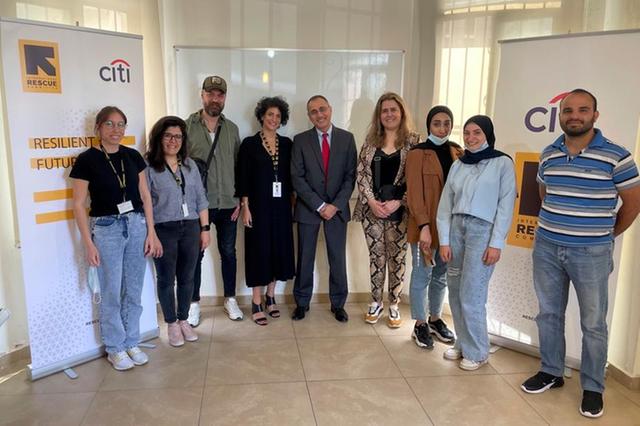International humanitarian organization, the International Rescue Committee (IRC) in Lebanon, with support from the Citi Foundation, launches the third edition of the ‘Resilient Futures’ program to support crisis-affected young business people in setting up or expanding their businesses.
The program, which first started in August 2019, provided cash grants and non-financial business development services to 102 vulnerable Lebanese and Syrian people individuals. Supported businesses sectors included food and beverage, hair dressing, tailoring, agriculture, and others. This year, the new edition will aim to reach 145 such young people.
Matias Meier, the IRC’s Country Director in Lebanon, said
“We are extremely privileged to announce another edition of the ‘Resilient Futures’ program after witnessing tremendous success from the previous two. People we have served were able to start or grow their own business and earn a living, which boosted their self-confidence and made them achieve their potential as productive members in society. The new edition will undoubtedly help continue what we have done before and reach more people to help them cope with the difficult economic conditions that have hit the country.”
The socio-economic situation in Lebanon has been in constant deterioration. Lebanon’s GDP fell from 55 billion USD in 2017 to an estimated 20.5 billion USD in 2021. The Lebanese pound also lost around 90% of its value. This had a massive negative impact on poverty levels. Households whose incomes are labeled in LBP saw their purchasing power fall heavily, which includes access to basic items such as food, medication, and fuel.
Ghassan Salem, CEO, Citi Lebanon, said:
“As we emerge from the pandemic, more investment in economic recovery programmes such as Resilient Futures is critical. Lebanon is facing an ongoing financial crisis with a collapsing currency and severe shortages, with serious implications for the livelihoods of everyday people. We’re hopeful that the third edition of this programme will contribute in some way to support youth and young people in Lebanon, for them to set up a business or enter the workforce by providing them with the skills required to build a living.”

